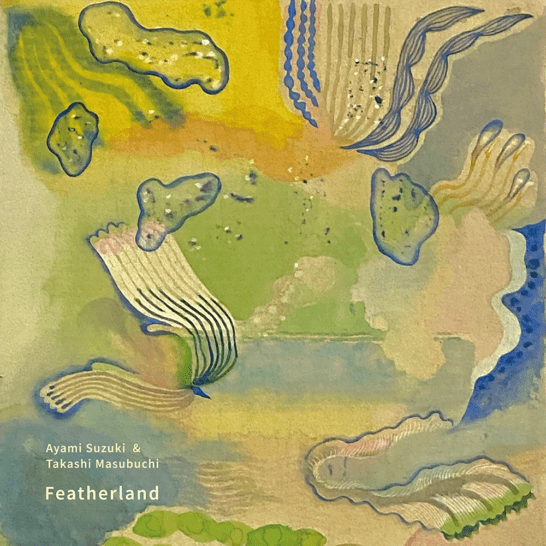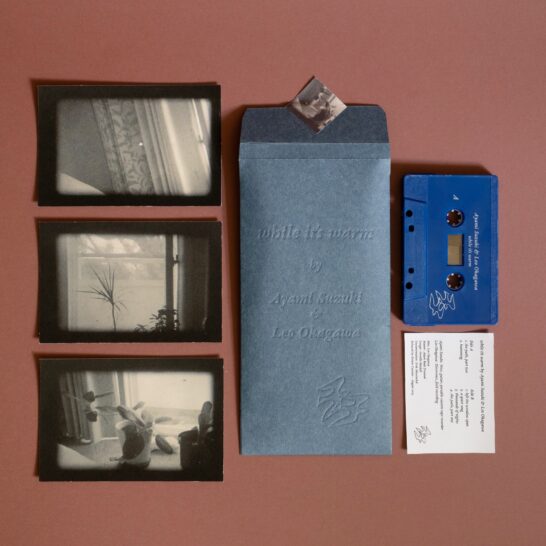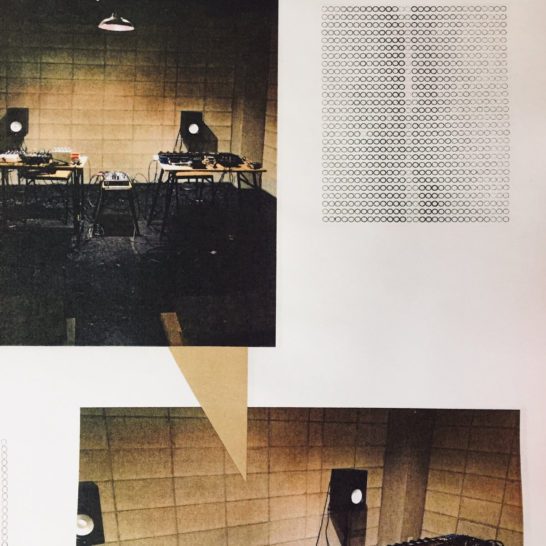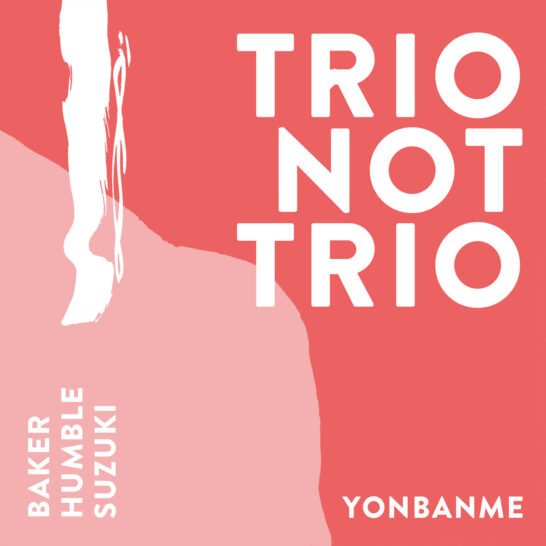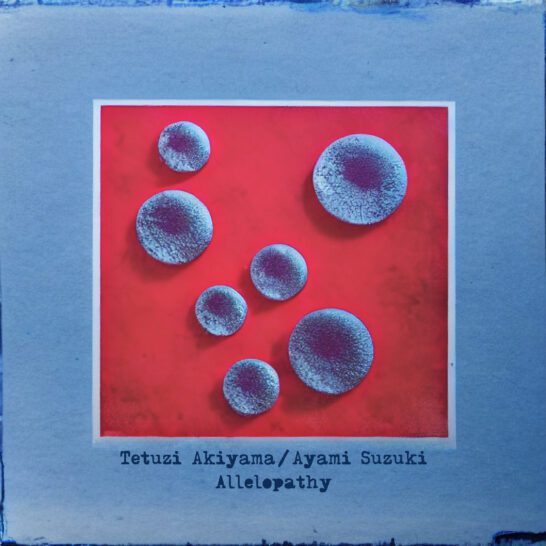1.Dawn
2.Hymn for Woods
3.Still Walking
4.Late August
5.Dust Trail
6.Nightfall
7.Featherland
about
This album is a collection of folk songs and hymns from an imaginary place called Featherland.
Featherland is the first recordings made by two improvisers working primarily in Tokyo.
Takashi Masubuchi is a guitarist influenced by blues, folk, minimal music, and Morton Feldman.
Ayami Suzuki is a vocalist with roots in Celtic music and ambient music. She also works as a songwriter.
Masubuchi and Suzuki performed as a duo for the first time on April 24th 2021 at Permian in Tokyo. The title track is a live recording from that session. The duo played again on August 28th 2021 at OTOOTO, also in Tokyo. The first six tracks are cut from that live performance.
All performances are completely improvised, acoustic, and performed without the use of microphones.
credits
released February 25, 2023
Ayami Suzuki – Voice
Takashi Masubuchi – Acoustic Guitar
Recorded by Takashi Masubuchi
Mixed and mastered by Takuro Okada
Design and artwork by Pei Chi Wu
A whimsical, minimalist journey for voice and guitar on the legendary Union Pole label leaves us waiting for one last sweet breath. We’re phantoms in the quiet echoes of this set of folktales from an imaginary place called Featherland. Ayami Suzuki continues her incredible run of remarkable albums, this time in a stripped-down environment where her vocal timbre resonates with an organic glow. There’s a thoughtful, emotional stream beaming from each of these songs, as though we’re stuck in time and watching the world pass us by. Masubuchi’s guitar arrangements are plaintive and hit so hard that we feel each plucked note in our bones. Wonderful.
(Review by Foxy Digitalis)
A l’écoute de « Featherland » on songe à Joséphine Forster ou Kathy Bloom, à ce folklore ancré dans les grandes plaines de l’americana, qui n’est pas dans la reproduction revivaliste du folk des 60/70s, continue à s’inventer par métissage, déplacement, ici décalé dans un ailleurs. Un album de chansons qui aurait pu être écris par Morton Feldman pour Sibylle Baier ou Joni Mitchell. Ce qui évoque le compositeur américain c’est la guitare de Masubuchi, cette façon de ralentir, de permuter quelques rares accords, d’étendre les intervalles de temps, de jouer sur un effet de répétition. Les chansons sont comme statiques, arrêtées sur elles-mêmes, monotones, mais non pas ennuyeuses, elles nous maintiennent dans une ambiance rêveuse, un abandon. Il y a comme une oscillation entre orient et occident, entre la voix non dépourvue d’un certain lyrisme et la guitare, évoquant autant la musique pour shamisen que cet autre guitariste d’avant-garde : Taku Sugimoto. Masubuchi est dans la proximité de l’univers si particulier de Sugimoto, partage avec lui de mêmes influences : du blues à John Cage, un rapport au temps plié sur lui-même, au silence bruissant. « Feather Land » est donc un disque de folk, d’avant-garde folk, qui derrière ce canevas laisse poindre un Japon qui s’efface, nous laissant allongé sur un oreiller d’herbes, dans un songe. On se laisse caresser par la voix d’Ayami Suzuki, ce chant de douceur, d’apaisement, qui semble flotter sur les arpèges trouées de Masubuchi, comme quelques fleurs coupées emportées par le courant. Sa voix nous prend la main, nous conduit dans un outre monde. Songs pastoraux, comme décalés de l’urbanité oppressante du Japon, peut-être un simple décor mais qui nous permet de nous abstraire du rythme obsédant de nos vies agitées. J’ai été attiré au Japon par ses voix, celles de ses chanteuses : Chie Mukai, Reiko Kudo, Shizuka, Morita Doji, cela aurait pu être celle-ci. Il y a comme une nonchalance, un abandon comme lorsqu’on se surprend à chanter dans son bain, plus besoin d’artifice, juste laisser les cordes vocales vibrer et s’unir à nous.
(Review by Michel Henritzi)
Both these musicians I reviewed before, from Suzuki also solo work but not from Masubuchi (I think). He plays the guitar, an acoustic one on this cassette, and blues, folk, minimal music, and Morton Feldman influence him. Suzuki studied Celtic music and was a songwriter and improviser with her voice. On April 24, 2021, they played their first concert together in Tokyo, which is the title piece of this cassette, spanning the entire second side. The six pieces on side A were recorded n August 28 of the same year, also in Tokyo. There is no amplification. The result is a beautiful, improvised set of music pieces. It is easy to see that ‘some kind of’ folk music is a source of inspiration for these musicians and how they approach their improvisation. Also, the guitar playing is sometimes Morton Feldman-inspired; there is lots of space between the notes here. Lyrics? Ah, yes, there might be some, but as always concerning words, I never pay attention to lyrical content. I admit I am unsure if there are any here. Maybe Suzuki sings Japanese; perhaps these are vocalizations? I don’t know. She adds this folky fairytale type of singing to a sparse set of guitar notes, which works very well. This is not a standard form of improvised music but rather a more traditional musical release that happens to be sparse and somewhat improvised. The long title piece is more spontaneous than the separate tracks on the other side. Maybe that was a deliberate decision to work with separate pieces, not one long piece? I don’t know the answer, but I think it works better as smaller, more defined songs. A pretty refined release, but at forty minutes also long enough.
(Review by Vital Weekly)
